
The Ulster Unionist Party (UUP) is a unionist political party in Northern Ireland. The party was founded as the Ulster Unionist Council in 1905, emerging from the Irish Unionist Alliance in Ulster. Under Edward Carson, it led unionist opposition to the Irish Home Rule movement. Following the partition of Ireland, it was the governing party of Northern Ireland between 1921 and 1972. It was supported by most unionist voters throughout the conflict known as the Troubles, during which time it was often referred to as the Official Unionist Party (OUP).

Belfast North is a parliamentary constituency in the United Kingdom House of Commons. The current MP is John Finucane of Sinn Féin.

Belfast West is a parliamentary constituency (seat) in the House of Commons of the UK Parliament. The current MP is Paul Maskey of Sinn Féin.

Belfast South is a parliamentary constituency in the United Kingdom House of Commons. The current MP is Claire Hanna of the SDLP.

Belfast City Council is the local authority with responsibility for part of Belfast, the capital and largest city of Northern Ireland. The council serves an estimated population of 345,006 (2019), the largest of any district council in Northern Ireland, while being the smallest by area. Belfast City Council is the primary council of the Belfast Metropolitan Area, a grouping of six former district councils with commuter towns and overspill from Belfast, containing a total population of 579,276.
Falls, a division of Belfast, was a UK parliamentary constituency in Ireland. It returned one Member of Parliament (MP) to the House of Commons of the United Kingdom from 1918 to 1922, using the first past the post electoral system.
St Anne's, a division of Belfast, was a UK parliamentary constituency in Ireland. It returned one Member of Parliament (MP) to the House of Commons of the United Kingdom from 1918 to 1922, using the first past the post electoral system.
Victoria, a division of Belfast, was a UK parliamentary constituency in Ireland. It returned one Member of Parliament (MP) to the House of Commons of the United Kingdom from 1918 to 1922, using the first past the post electoral system.

Blackley and Broughton is a constituency represented in the House of Commons of the UK Parliament by Graham Stringer. He was first elected in 1997 for the former Manchester Blackley and prior to this was Leader of Manchester City Council. The constituency covers north Manchester and east Salford.
John Terence Lowry is the former General Secretary of the Workers' Party in Ireland. He is a native of the Lower Falls area of Belfast.
The Northern Ireland Conservatives is a section of the United Kingdom's Conservative Party that operates in Northern Ireland. The party won 0.03% of the vote in the 2022 Northern Ireland Assembly election and 0.7% of the vote in the 2019 United Kingdom General election in Northern Ireland.

Elections for local government were held in Northern Ireland on 15 May 1985, contesting 565 seats in all.
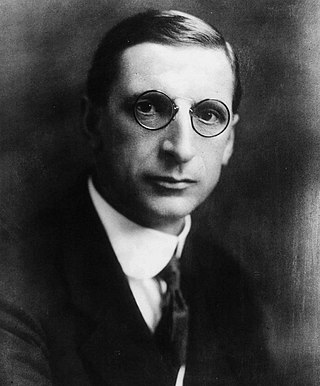
Elections were held in January and June 1920 for the various county and district councils of Ireland. The elections were organised by the Dublin Castle administration under the law of the then United Kingdom of Great Britain and Ireland (UK), and held while the Irish War of Independence was pitting UK forces against those of the Irish Republic proclaimed in 1919 by the First Dáil. Elections were held in two stages: borough and urban district councils in January; and county and rural district councils in June. Sinn Féin, which had established the First Dáil, won control of many of the councils, which subsequently broke contact with Dublin Castle's Local Government Board for Ireland and instead recognised the republican Department of Local Government. The election results provide historians with a barometer of public opinion in what would be the last elections administered on an all-island basis: the Government of Ireland Act 1920 passed at the end of the year effected the partition of Ireland from 1921, though the elections for the two home rule Parliaments envisaged by it were held on the same day; No further elections would be held simultaneously across the island of Ireland until 1979, when representatives of the Republic of Ireland and Northern Ireland to the European Parliament were elected. The next local elections were held in 1924 in Northern Ireland and in 1925 in the Irish Free State.
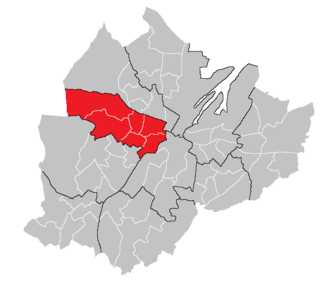
Court is one of the ten district electoral areas (DEA) in Belfast, Northern Ireland. Located in the north and west of the city, the district elects six members to Belfast City Council and contains the wards of Ballygomartin, Clonard, Falls, Forth River, Shankill, and Woodvale. Court is split between the Belfast North and Belfast West constituencies for the Northern Ireland Assembly and UK Parliament.

Máirtín Ó Muilleoir is an Irish Sinn Féin politician, author, publisher and businessman, who served as the 70th Lord Mayor of Belfast from 2013 to 2014.
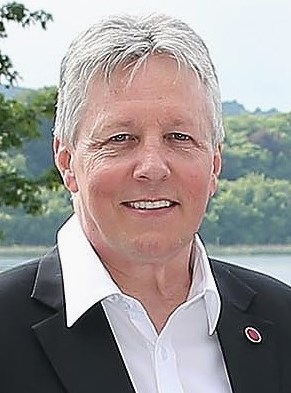
Local elections were held in Northern Ireland on Thursday 22 May 2014, contesting 462 seats in all, as part of the wider local elections across the United Kingdom. The election took place on the same day as the European Parliament election. 1,243,649 people aged 18 and over were eligible to vote, and 51.3% of the electorate turned out.
Robert Lindsay Mason, known as Lindsay Mason, was a unionist politician in Northern Ireland. Known as something of an eccentric, Mason's entire career in politics was spent outside the major unionist parties such as the Ulster Unionist Party and the Democratic Unionist Party.

An election to Belfast Corporation took place in January 1920 as part of that year's Irish local elections. The Local Government (Ireland) Act 1919 had seen elections for local government in Ireland change to a more proportional system. As a result, Unionist dominance of the Belfast council was somewhat undermined, and the party lost 15 seats. In contrast Labour, Sinn Féin, and Nationalist representation grew, resulting in a more politically and socially representative council.
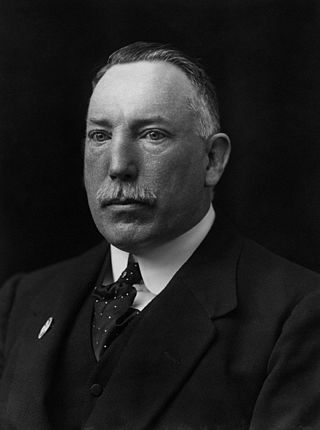
The 1924 Northern Irish local elections were held in January & June 1924 for the various county & district councils of Northern Ireland. The election followed changes by the Unionist government, which had redrawn electoral districts, abolished PR for local elections, and implemented a requirement for members of local authorities to take an oath of allegiance.
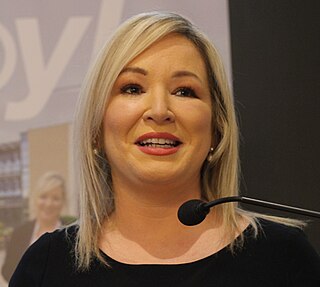
The 2022 Northern Ireland Assembly election was held on 5 May 2022. It elected 90 members to the Northern Ireland Assembly. It was the seventh assembly election since the establishment of the assembly in 1998. The election was held three months after the Northern Ireland Executive collapsed due to the resignation of the First Minister, Paul Givan (DUP), in protest against the Northern Ireland Protocol.















